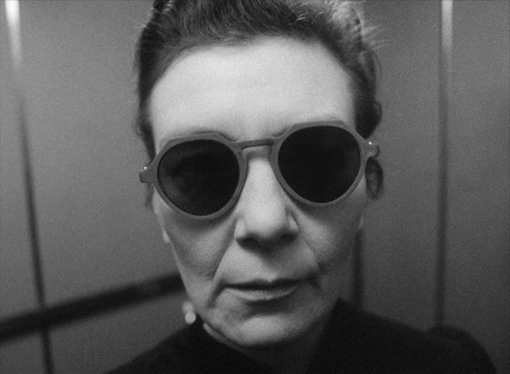Visions of Change – The Evolution of the British TV Documentary
The British Film Institute continues its re-evaluation of the British documentary tradition with Visions of Change, an extensive collection of television films made during the 1950s and 1960s. Dr Ieuan Franklin, Lecturer in Film and Media Theory at Bournemouth University/Wiltshire College, looks at the first release in this collection, which focuses on the output of the BBC.
 About the Author: Dr Ieuan Franklin is a Lecturer in Film and Media Theory at Bournemouth University/Wiltshire College. He was previously the Research Assistant on the AHRC-funded Channel 4 Television and British Film Culture project. His publications include ‘Think-Tape: The Aesthetics of Montage in the Post-War Television Documentary ‘, in J. Jacobs and S. Peacock (Eds.), Television Aesthetics and Style (Continuum 2013) and the recent collection Regional Aesthetics: Mapping UK Media Cultures, which he edited with Hugh Chignell and Kristin Skoog (Palgrave 2015).
About the Author: Dr Ieuan Franklin is a Lecturer in Film and Media Theory at Bournemouth University/Wiltshire College. He was previously the Research Assistant on the AHRC-funded Channel 4 Television and British Film Culture project. His publications include ‘Think-Tape: The Aesthetics of Montage in the Post-War Television Documentary ‘, in J. Jacobs and S. Peacock (Eds.), Television Aesthetics and Style (Continuum 2013) and the recent collection Regional Aesthetics: Mapping UK Media Cultures, which he edited with Hugh Chignell and Kristin Skoog (Palgrave 2015).
This first volume of Visions of Change is the latest instalment in the BFI’s impressive project to make available and reassess the British documentary legacy, following on from Land of Promise (wartime and post-war documentaries) and Shadows of Progress (factual films from the 1950s to the 1970s). Whereas Shadows of Progress concentrated on sponsored documentary, Visions of Change turns attention towards the television documentary, and, in the case of this first volume, the BBC. After the war, the Griersonian tradition of publicly funded or sponsored documentary had withered away, and it was left to TV to pick up the mantle of social responsibility – arguably an essential part of the BBC’s role as a sort of ‘cultural health service’.
This box-set begins with John Read’s film portrait of the sculptor Henry Moore (tx. 30 April 1951), a milestone ‘artist at work’ film, in which Moore’s work is shown to be grounded in England’s rural landscape. Yet the film also briefly features the artist’s WW2 sketches of underground shelters during bombing raids, with Read’s narration invoking the viewer’s familiarity with the experience of war. The spectre of war returns within Denis Mitchell’s masterpiece Morning in the Streets (tx. 25 March 1959), here resplendent in a new digital transfer. This is true of all these documentaries, but the restoration of Mitchell’s film is particularly significant, as it has for so long been associated with a scratchy celluloid patina that has mirrored its neglect by histories of television and documentary. In recent years it has been utilized extensively (e.g. in Terence Davies’ Of Time and the City, 2008), but labelled merely as BBC archive footage without due credit to Mitchell. Although it is rare as a documentation of working-class life during the post-war period, it is the First World War that is recalled here, most notably in an incredibly moving scene in which an old woman listens to the Armistice Service on the radio. As she warms her hands at a tiny old-fashioned kitchen grate, her tape-recorded voice swells up on the soundtrack, drowning out the pompous radio commentary and directly relaying her memories of her husband being called up, and how she later heard that he had been killed on 12 March 1915, at The Battle of Neuve Chapelle.

‘Pop Goes The Easel’ from the Monitor series (Image: BBC/BFI)

 Learning on Screen
Learning on Screen